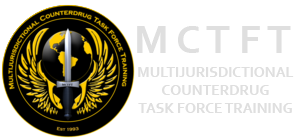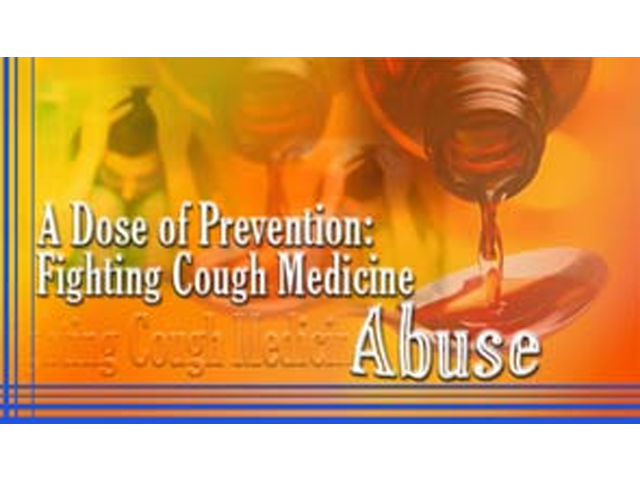We’ll hear from a mother whose son, now a 22-year-old, is serving a 13-year prison sentence in Folsom State Prison for actions he took while under the influence. We’ll also hear from a person who abused cough medicine and is now telling his story in hopes of preventing someone else from going down the same road. Also, see how CADCA and CHPA are joining forces to educate parents, engage coalitions and reduce this problem through education and policy change. Learn about efforts to designate and recognize August as National Medicine Abuse Awareness Month. Find out how your community can get involved.
Learning Objectives:
- Is cough medicine abuse on your radar screen? Get the national statistics and learn how you can gather local data to see if this is a problem in your community.
- Learn the risks of OTC cough medicine abuse.
- Know the signs of cough medicine abuse.
- Find out how the internet is being used to promote this abuse.
- Discover concrete steps that parents and communities can take to prevent this dangerous trend.
- See how CADCA and CHPA are joining forces to educate parents, engage coalitions and reduce this problem through education and an increased awareness
Originally Aired: August 23, 2007
Panelists
Linda A. Suydam
D.P.A., Consumer Healthcare Products Association (CHPA) President
Linda Suydam is the president and principal spokesperson for CHPA under the guidance and direction of the CHPA Board of Directors. She has a B.A. from College of New Jersey, a M.A. from George Washington University, and a M.P.A., D.P.A. from the University of Southern California.
Suydam joined CHPA as its president in June 2002. Since then she has directed the establishment of the Consumer Health Education Center (CHEC), CHPA’s educational foundation; has increased opportunities for synergistic cooperation between member firms by establishing the annual Market Exchange and retail immersion events; and enhanced the Association’s positive relationship with the U.S. Food and Drug Administration (FDA) through educational seminars, conferences, and joint learning opportunities.
Prior to joining CHPA, Suydam enjoyed a 21-year career at FDA, rising from an entry-level position to senior associate commissioner, the highest-ranking, non-political executive position in the Agency. During her career, she received the Presidential Meritorious Rank Award, the Department of Health and Human Services Distinguished Service Award, and the Public Health Service Superior Service Award. She left FDA for three years to serve as the associate vice president of the Health Sciences Center of the University of New Mexico with responsibility for planning, development, public relations, and marketing.
Suydam is a member of several boards of directors, including the World Self-Medication Industry Federation, the University of California-San Francisco School of Pharmacy Board of Visitors, and the National Children’s Medical Center’s Children’s Research Institute Board.
Christy Crandell
Drug Awareness Advocate, Author, Lincoln, CA
Christy Crandell is an author and drug awareness advocate from Lincoln, Calif. Dedicated to educating parents about the issue of teen drug abuse, Crandell serves as the parent outreach coordinator for the Rocklin Unified School District. In addition, she is a teacher with The Parent Project, a national parenting program for parents of teens exhibiting out-of-control or destructive behavior, and works with her county on several grants for programs on teen alcohol and drug abuse.
Crandell’s passion for the issue of teen drug abuse comes from personal experience. Her son Ryan, now 22-years-old, is serving a 13-year sentence in Folsom State Prison for an armed robbery he committed while high on over-the-counter cough medicine and marijuana. For Crandell, sharing her story with parents and hopefully helping them avoid her family’s tragedy is her mission. Her book, Lost & Found: A Mother and Son Find Victory over Teen Drug Addiction, tells her family’s story and provides important information and resources about drug abuse for parents.
Crandell is also one of five moms from across the country that make up the Five Moms: Stopping Cough Medicine Abuse campaign, an online education and awareness campaign designed to educate parents about the problem of over-the-counter cough medicine abuse amongst teens. Crandell’s greatest hope is that her work with Five Moms will prevent other parents from having to get their education the hard way, as she did.
Cynthia R. Lewis-Younger, MD, MPH
Florida Poison Information Center — Tampa
Dr. Lewis-Younger currently is the Managing/Medical Director of the Florida Poison Information Center — Tampa. Prior to accepting the Managing/Medical Director position in May 2006, Dr. Lewis-Younger was the Associate Medical Director for the center, as well as the Medical Director of Comprehensive Occupational Medicine for Business and Industry (COMBI). Before completing her Medical Toxicology fellowship at the Oregon Health and Sciences University in 2002, she was an Assistant Professor of Occupational Medicine from 1995-2000 at the University of Utah. She served as Medical Officer in the Agency for Toxic Substances and Disease Registry from 1991 to 1995. Dr. Lewis-Younger graduated from the University of Alabama School of Medicine in 1979, and practiced Emergency Medicine and Occupational Medicine in the 1980’s. Dr. Lewis-Younger is Board-certified in Occupational Medicine and Medical Toxicology.
Eric Gregory
Eric Gregory is a founding member and Executive Director of the Save Our Kids Coalition in Bowling Green, Kentucky.
He is a Certified Prevention Professional and currently serves as Secretary on the Kentucky Certification Board for Prevention Professionals (KCBPP). He serves as a member on several local boards including the Warren County Juvenile Delinquency Prevention Council and Warren County Kentucky Agency for Substance Abuse Policy Board. With over six years of experience as a prevention professional, he has served as an expert panelist and assisted many communities in developing anti-drug coalitions in implementing evidence-based prevention practices.

